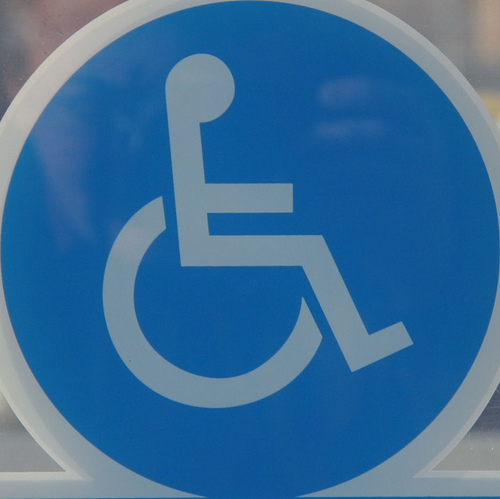Like everyone else, people with disabilities and special needs need to prepare for disasters and the unexpected at home and in the work place. While the basic needs are the same as most individuals there will be some obvious differences depending on the needs of that specific person.
In the corporate world as I have worked as a consultant and spoken to others on this issue the preparedness level runs across an entire spectrum from the excellent, where people volunteer to help those with special needs to help them evacuate, to the legally questionable, "those people are on their own" attitude.
While I will not be addressing any of the workplace issues here, it is important to know that people with special needs, should be incorporated into your disaster planning. What I will be doing here is providing some basic advice for those with disabilities and special needs and for their family members who may also have concerns about preparedness issues.
First since everyone can start with the same basic preparedness needs here is an excellent checklist you can use for your emergency preparedness kit from Ready.gov It is in PDF format so it is easy for you to download and print out.
Next, start with the individual needs of the person, do they require more water? Odds are, they will for hygiene and sanitary purposes. Do they have special dietary needs, feeding tubes? These will require you to stock some extra items for these people in case of an emergency. People who take insulin which requires refrigeration also have concerns about power. These are just some small examples to get you thinking about deferent needs.
Here is a list from ready.gov which is quite useful to help you get started in planning for persons with disabilities:
- Create a support network to help in an emergency.
- Tell these people where you keep your emergency supplies.
- Give one member of your support network a key to your house or apartment.
- Contact your city or county government's emergency information management office. Many local offices keep lists of people with disabilities so they can be located quickly in a sudden emergency.
- Wear medical alert tags or bracelets to help identify your disability.
- If you are dependent on dialysis or other life sustaining treatment, know the location and availability of more than one facility.
- Show others how to operate your wheelchair.
- Know the size and weight of your wheelchair, in addition to whether or not it is collapsible, in case it has to be transported.
-
Encourage electronic payments for federal benefit recipients. Keep in mind a disaster can disrupt mail service for days or even weeks. For those who depend on the mail for their Social Security benefits, a difficult situation can become worse if they are evacuated or lose their mail service – as 85,000 check recipients learned after Hurricane Katrina. Switching to electronic payments is one simple, significant way people can protect themselves financially before disaster strikes. It also eliminates the risk of stolen checks.
-
- Direct deposit to a checking or savings account is the best option for people with bank accounts. Federal benefit recipients can sign up by calling (800) 333-1795 or at www.GoDirect.org.
- The Direct Express® prepaid debit card is designed as a safe and easy alternative to paper checks for people who don’t have a bank account. Sign up is easy – call toll-free at (877) 212-9991 or sign up online at www.USDirectExpress.com.
Signing up for direct deposit or the Direct Express card is a simple but important step that can help protect your family’s access to funds in case the unthinkable were to happen. If you or those close to you are still receiving Social Security or other federal benefits by check, please consider switching to one of these safer, easier options today.
- Additional Supplies for People with Disabilities:
- Prescription medicines, list of medications including dosage, list of any allergies.
- Extra eyeglasses and hearing-aid batteries.
- Extra wheelchair batteries, oxygen.
- Keep a list of the style and serial number of medical devices.
- Medical insurance and Medicare cards.
- List of doctors, relatives or friends who should be notified if you are hurt.
Be sure to visit the website Disability Preparedness from DHS for more information and resources.
One last note if you have family at home on an important life sustaining device that requires power at all times make sure you communicate that with your local power provider. Once they know that you have someone in your home that is a high priority and that you need power returned ASAP when it is out they will work with you to restore your power quickly. They will try when possible to keep power running to your home in many cases when servicing the area, and may even provide additional assistance in some cases by providing a generator (though not all may do so). You also can often get a direct number to someone in the office as an emergency contact as well. If this is a real concern for you I also would recommend having your own generator ready to go at all times.
